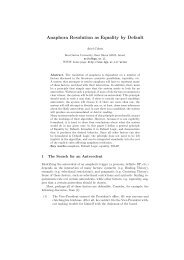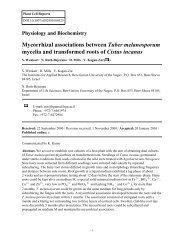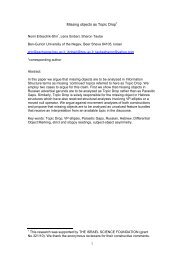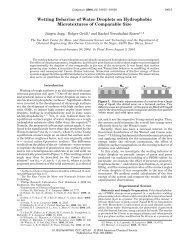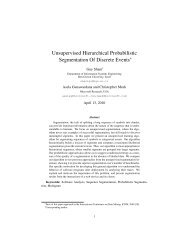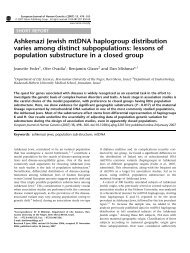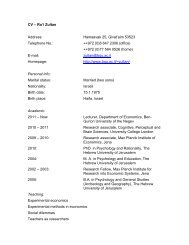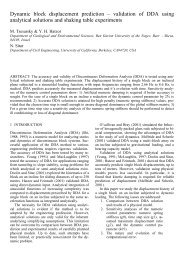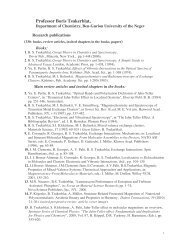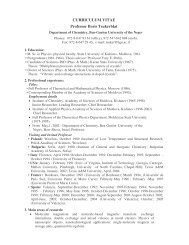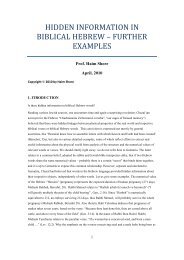Generics, Frequency Adverbs, and Probability
Generics, Frequency Adverbs, and Probability
Generics, Frequency Adverbs, and Probability
Create successful ePaper yourself
Turn your PDF publications into a flip-book with our unique Google optimized e-Paper software.
property.<br />
That is to say, for every sufficiently long interval, the relative<br />
frequency satisfies the same condition (e.g. greater than 0.5) as the limiting<br />
relative frequency over the history as a whole. Yet, it is obviously possible<br />
to partition a domain in other ways, not simply according to time. Do other<br />
partitions play a role in the evaluation of generics <strong>and</strong> frequency statements?<br />
The answer to this question, I claim, is yes. While frequency adverbs<br />
require their domain to be homogeneous only with respect to the time partition,<br />
generics require homogeneity with respect to a great number of other<br />
partitions as well. Before presenting arguments for this claim, we should note<br />
that it seems to correspond rather well to the pre-theoretical notion of what<br />
a generic sentence means. Lowe (1991), for example, considers (28):<br />
(28) Fido chases cats<br />
He writes:<br />
The sort of empirical evidence which would support or undermine the<br />
truth of [(28)] is a matter that is broadly familiar to us all (though it is<br />
by no means a simple matter). If Fido is found to chase a good many<br />
different individual cats, of varying sizes, colours, ages <strong>and</strong> temperaments,<br />
then, ceteris paribus, we shall consider [(28)] to be empirically<br />
well supported; if not, then not (p. 295, original emphases).<br />
Lowe’s observation makes intuitive sense. Note that what this means is that<br />
it is not sufficient for Fido to chase many cats, but that he should chase<br />
cats of many varieties.<br />
That is to say, the domain of the generic has to<br />
36



